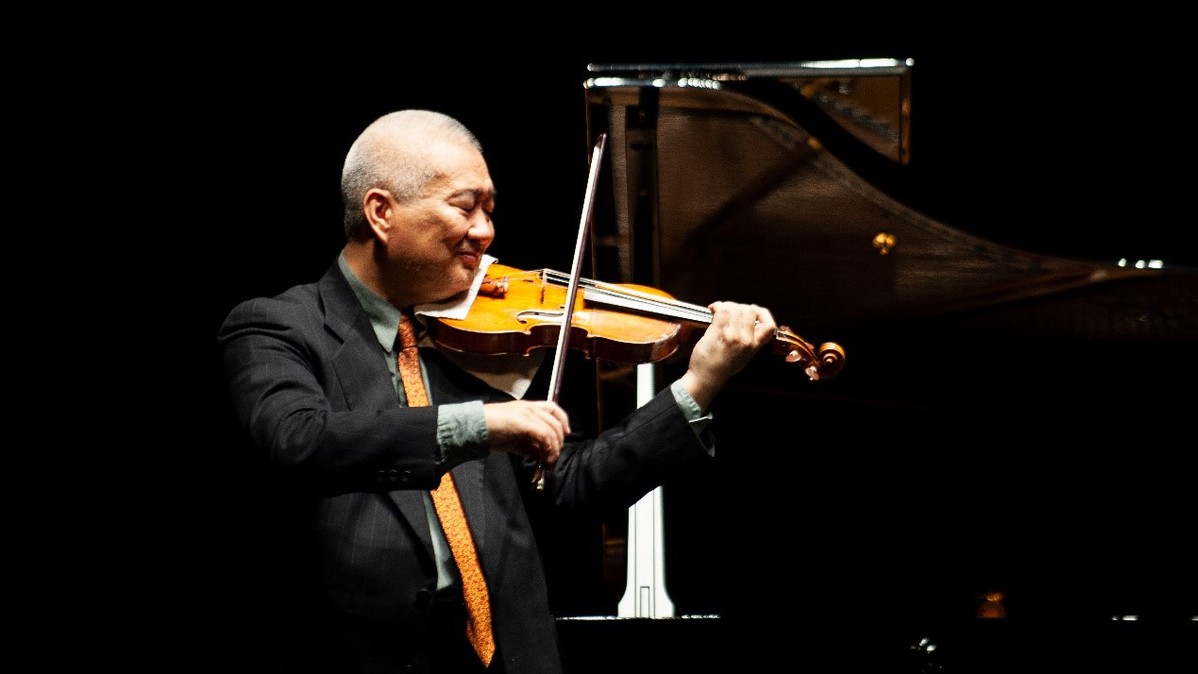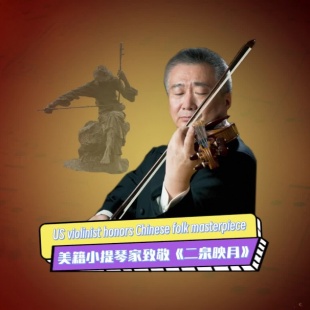US violinist honors Chinese folk masterpiece


"Despite everything Ah Bing endured in his life — the illness and poverty — he maintained an inner positivity, which is reflected in his music. But you can only hear it if you stay faithful to his original version," Kim emphasized.
Undeterred, the maestro recreated the piece from the original recording, adding handwritten notes to ensure fidelity to the work. The process, he said, deepened his understanding of both the piece and Ah Bing's spirit.
Interestingly, Kim's interpretation of Moon Reflected on Erquan Spring offers a different perspective from the traditional view of the piece as a sorrowful reflection of Ah Bing's tragic life.
"The melody begins with 'Mi Re Mi Do Si La', the only time it appears in the entire piece, hinting at sorrow," Kim explained. "After that I feel like Ah Bing is taking a walk through his life journey."

In the second variation, Kim imagines a friend joining the composer, and by the third variation, a kind and empathetic female companion shows up.
Kim interprets the repeating melody in the third variation as this female figure, symbolizing a conversation between her and Ah Bing. "The music builds to a climax after the fifth variation, representing a triumphant feeing of all positive emotions with no trace of the sadness of his life," he said.
Wuxi, Ah Bing's birthplace, has made significant strides in recent years to enhance its cultural and musical reputation. Efforts include hosting numerous concerts and performances themed around Ah Bing, establishing a symphony orchestra, and inviting international musicians for cultural exchanges.
Kim praised Wuxi's efforts, adding, "Music is universal. It can be appreciated by anyone, but more advanced music has the power to elevate our consciousness." He concluded with a smile: "Hold more concerts, invite more artists – and invite me back!"
Yan Weijue contributed to this story.





































